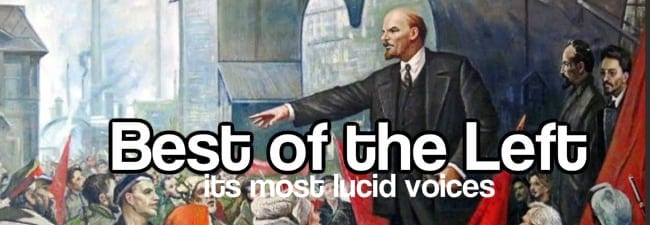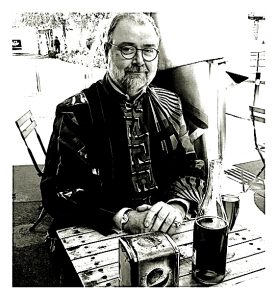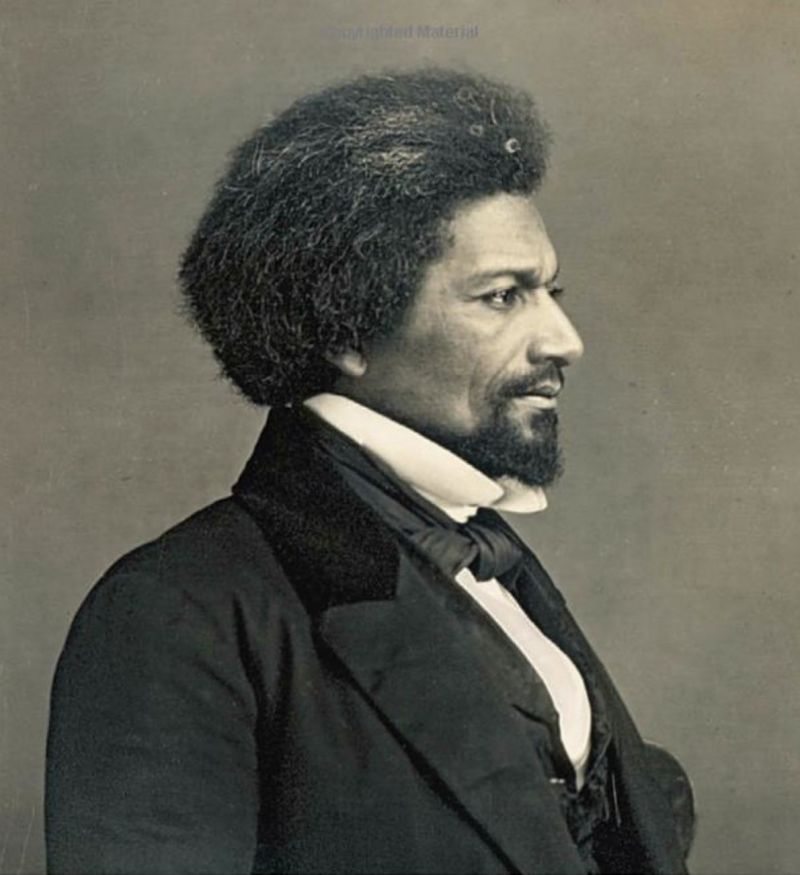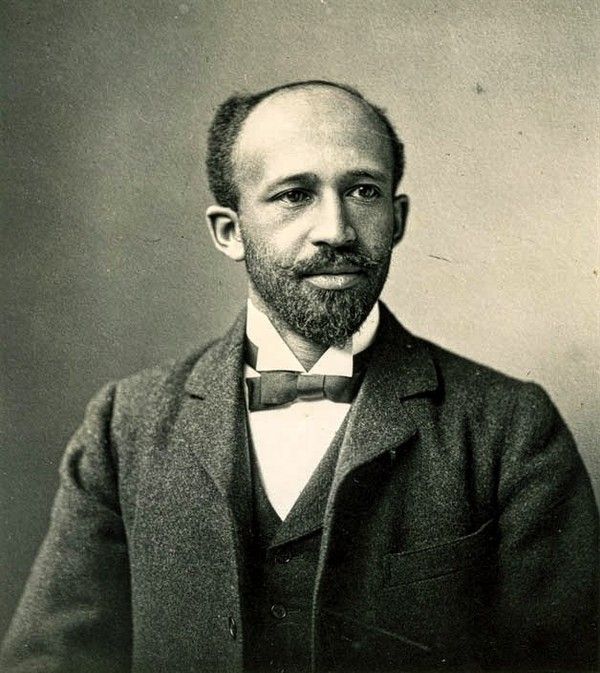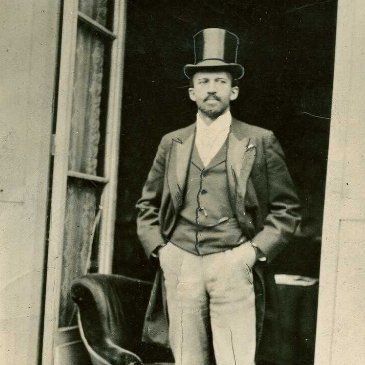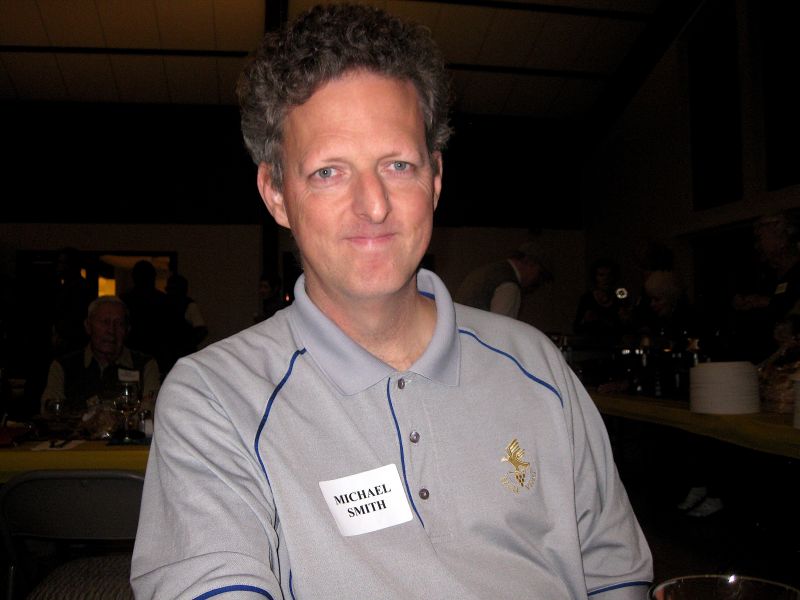Moderate Extremism and Extremist Moderation: Symptoms of Structural Illiteracy and Racism in the US-European Empire

U.S.Secretary of State Madeleine Albright said the deaths of hundreds of thousands of Iraqi children was “worth it” – meaning, a reasonable price to pay for continued U.S. global dominance. There is no price in “colored” people’s blood and sovereignty that the U.S. Empire is not willing to “pay.” Fortunately, “Russia has done for Syria what the Soviet Union was unable to do for Lumumba’s Congo” – prevent Syria from paying America’s “price.”
“The term sovereignty is incomprehensible to Americans because their entire history is based on the denial of sovereignty to non-whites.”

Goldwater may have been wrong about many things, but about the inherent hypocrisy of "centrist extremism"—the revered moderate mantra, he was not.
On 16 July 1964, at the San Francisco Republican Convention – where Ms Clinton began her career of political opportunism – Senator Barry Goldwater accepted his nomination for the presidency by declaring:
“I would remind you that extremism in the defence of liberty is no vice. And let me remind you also that moderation in the pursuit of justice is no virtue.”i
This was his defense of the political faction who defended him against “moderate” Republicans – like Nelson Rockefeller – so that Goldwater could be a “choice, not an echo” in the campaign against Kennedy successor Lyndon Johnson. Goldwater lost and “moderation” won. Instead of atomic bombs, the US dropped conventional explosives on Indochina for the next ten years.
Across the sea in one of the temples of the Anglo-American elite, the Oxford Union, this very claim was being defended by, among others, Scottish Nationalist Hugh MacDiarmid and Malcolm X – though certainly not in the manner of Goldwater. Malcolm chose an example that is as current today as it was 51 years ago:
“But most people usually think [laughs to himself], in terms of extremism, as something that is relative, related to someone they know or something that they’ve heard of, I don’t think they look upon extremism by itself, or all alone. They apply it to something. A good example – and one of the reasons that this can’t be too well understood today – many people who have been in positions of power in the past don’t realize that the power, the centers of power, are changing. When you’re in a position of power for a long time you get used to using your yardstick, and you take it for granted that because you’ve forced your yardstick on others, that everyone is still using the same yardstick. So that your definition of extremism usually applies to everyone, but nowadays times are changing, and the center of power is changing. People in the past who weren’t in a position to have a yardstick or use a yardstick of their own are using their own yardstick now. You use one and they use another. In the past when the oppressor had one stick and the oppressed used that same stick, today the oppressed are sort of shaking the shackles and getting yardsticks of their own, so when they say extremism they don’t mean what you do, and when you say extremism you don’t mean what they do. There are entirely two different meanings. And when this is understood I think you can better understand why those who are using methods of extremism are being driven to them.
“The press is used to make cold-blooded murder appear as an act of humanitarianism.”
“A good example is the Congo. When the people who are in power want to, again, create an image to justify something that’s bad, they use the press. And they’ll use the press to create a humanitarian image, for a devil, or a devil image for a humanitarian. They’ll take a person who’s a victim of the crime, and make it appear he’s the criminal, and they’ll take the criminal and make it appear that he’s the victim of the crime. And the Congo situation is one of the best examples that I can cite right now to point this out. The Congo situation is a nasty example of how a country because it is in power, can take its press and make the world accept something that’s absolutely criminal. They take pilots that they say are American trained, and this automatically lends respectability to them [laughter], and then they will call them anti-Castro Cubans, and that’s supposed to add to their respectability [laughter], and eliminate that fact that they’re dropping bombs on villages where they have no defense whatsoever against such planes, blowing to bits black women, Congolese women, Congolese children, Congolese babies, this is extremism, but it is never referred to as extremism because it is endorsed by the West, it is financed by America, it’s made respectable by America, and that kind of extremism is never labelled as extremism. Because it’s not extremism in defense of liberty, and if it is extremism in defense of liberty as this type just pointed out, it is extremism in defense of liberty for the wrong type of people [applause].
“I am not advocating that kind of extremism, that’s cold-blooded murder. But the press is used to make that cold-blooded murder appear as an act of humanitarianism. They take it one step farther and get a man named Tshombe, who is a murderer, they refer to him as the premier, or prime minister of the Congo, to lend respectability to him, he’s actually the murderer of the rightful prime minister of the Congo, they never mention this [applause].
“I’m not for extremism in defense of that kind of liberty, or that kind of activity. They take this man, who’s a murderer, and the world recognizes him as a murderer, but they make him the prime minister, he becomes a paid murderer, a paid killer, who is propped up by American dollars. And to show the degree to which he is a paid killer the first thing he does is go to South Africa and hire more killers and bring them into the Congo. They give them the glorious name of mercenary, which means a hired killer, not someone that is killing for some kind of patriotism or some kind of ideal, but a man who is a paid killer, a hired killer. And one of the leaders of them is right from this country here, and he’s glorified as a soldier of fortune when he’s shooting down little black women, and black babies, and black children. I’m not for that kind of extremism, I’m for the kind of extremism that those who are being destroyed by those bombs and destroyed by those hired killers, are able to put forth to thwart it. They will risk their lives at any cost; they will sacrifice their lives at any cost, against that kind of criminal activity. I am for the kind of extremism that the freedom fighters in the Stanleyville regime are able to display against these hired killers, who are actually using some of my tax dollars which I have to pay up in the United States, to finance that operation over there. We’re not for that kind of extremism.”ii
Ideological Fictions
Almost nobody in Europe or the United States, let alone their propaganda (advertising) instruments, is discussing the unending slaughter in the Congo today. Yet for a score and six years the defense of the Empire has meant persuading “whites” that any deviation from the corporate imperial form conceived in 1949 and consummated in 1989 is extremism per se. Such omnipresent extremism has served to maintain the illusion that its supposed opposite, the status quo, is moderation incarnate.
Hence in every US election what I have previously called orthodox and reform liberals have insisted that they are opposed to anything that could be called extreme while fanatically defending the mythical moderate or middle.iiiThe epitome of this fanatical moderation is the absurd definition of the majority of America’s population as “middle class.” In fact, just a primitive survey of the distribution of income and assets in the US, especially since the 1970s, reveals that the term “middle class” is an ideological fiction, albeit in a hermetically sealed environment such as the USA a very persuasive one.
In this “middle class” managed by an ideology of fanatical moderation, the vast majority of the racially dominant caste finds both reassurance and perpetual anxiety. This moderation is best exhibited in a passion for euphemism and an uncritical adoption of regime (corporate) jargon. This language is inherently pretentious since it is consumed and regurgitated in an environment of almost total ignorance of the regime’s power structure or the exercise of US power in the world.
“This war against an Arab state, against a socialist state, is not a moderate war.”
Some fifty years after Malcolm X defended “extremism in the cause of liberty, for human beings,” we are witnessing, albeit from safe havens in Europe and North America, what must fairly be called the resurrection of the extremist moderation that resulted in the murder of Patrice Lumumba and the permanent destruction of the Congo. That moderation is the smug acceptance of the destruction of the very last remains of anti-colonialism, which it was then – as now – the mission of the US Empire to crush. Fifty years ago, mercenaries from the white settler regime in South Africa together with anti-Castro mercenaries trained by the US combined with the collusion of a US-dominated United Nations force and Belgian colonial troops were deployed to destroy the Republic of the Congo and deliver it to the administration of a paid agent of the principal instrument of US foreign policy, the CIA. After the destruction of Yugoslavia and the destruction of Libya by the very same means, we are forced to watch the demolition of Syria. This war against an Arab state, against a socialist state, is not a moderate war. It is not a new war. It is the continuation of a persistent war the origins of which are identical to those which led the United States and its vassals to crush Congolese independence.
What is the difference between 1964 and 2015? In 1964, after betrayal by Belgium, betrayal by the US, collaboration in that betrayal by the United Nations, Patrice Lumumba called reluctantly and at great risk to his country’s reputation in the world, the Soviet Union for assistance in defending his country from those mercenaries—from those hired murderers armed by the West. Africa was far away and the Soviet Union was still struggling to rebuild what the West had destroyed in World War II, overtly with the Wehrmacht and covertly with continuous aid by US corporations. The Soviet Union was unable to support Lumumba.
Two weeks ago, Russia, far closer to Syria and after a strenuous recovery from the brigandry of the US-instigated Yeltsin regime, after exhausting all available diplomatic means, accepted the request of the government of Syria to assist it in defending the country’s people and their sovereignty from the massed mercenary armies armed and supported by an apartheid regime to the South and the governments of the former colonial masters of the region. Russia has done for Syria what the Soviet Union was unable to do for Lumumba’s Congo.
“The U.S. claims that peculiarly Christian legacy inherited from the Crusaders who terrorised the region a millennia ago.”
What is the same? While ostensibly deploring the racist settler-colonial regime (although rarely ever criticised with such uncompromising vocabulary), the combined forces of the world’s greatest mercenary state and its equally mercenary mass media corporations, have been waging and continue to wage war against independent people organized in their own sovereign country. Then as now, that great mercenary state – and by mercenary I mean a state whose very roots have been nurtured by the blood of slaves and indigenous peoples shed by the hands of people who wittingly or unwittingly bought their supposed freedoms with that slavery and bloodshed – aims to conquer the Middle East as they conquered Africa. We should make no mistake. That state, which like the European states from which it was born, claiming a Christian heritage also claims that peculiarly Christian legacy inherited from the Crusaders who terrorised the region a millennia ago.
Now that Russia has entered the battlefield, we find the voices of moderation from throughout that empire demanding, pleading for Russia to withhold its support to the Syrian state. With what reason one may ask? The arguments can be found in many shades and hues. After Russia’s president Vladimir Putin announced to the United Nations convened in general assembly that the so-called “war against terror” declared unilaterally after events one September was not being fought in any earnest in the Middle East except by the government of Syria, led by President Assad, there was no response from the crusaders in Washington or London. Shortly thereafter Mr. Putin announced that his government would send to Syria the support it requested and to which it was obliged by treaty dating from 1956. Yet before any military action had taken place, the mercenary media of the West announced that Russia had bombed “moderate” opponents of the Syrian government, trained and funded by the United States. Even the absurdity of this allegation, which rapidly saturated all the public media outlets, caused no embarrassment among “moderates” in the West.
When within a week it was reported that Russian bombardment and Syrian army action had forced the retreat of thousands of those mercenaries, the only reply was that Russia was bombing the “wrong” terrorists—the terrorists trained and funded by the United States. Yet when the Russian foreign minister offered to consider actions that might ameliorate that damage – without admitting the validity of such a distinction – the US regime was unable or unwilling to identify such “wrong” or “moderate” terrorists. A reasonable observer must conclude either that the US regime itself makes no distinction or that it simply is unable to make one. If it makes no distinction then the US accusation is nonsense. If such a distinction is impossible then it is also impossible for the US regime to know which terrorists are in fact the “wrong” or “moderate” ones.
“Why have the country and the regime which rules it been able to commit such uninterrupted atrocities?”
However, it lies in the nature of moderate extremism that there are no facts that a reasonable person is capable of discerning. Moreover it is the extremist moderate who is incapable of recognizing facts in any context – historical or logical – that would lead to humane, let alone just evaluation of the circumstances at issue.
In this sense we find precisely the situation and the condition that prevailed in 1964. It is a condition that has characterized the entirety of the era benignly called the “American Century” – a century in which the United States, beginning with the bombing of Hiroshima and Nagasaki, has been the leading purveyor of violence on this planet.iv In fact, for saying this in the land of the free and the genocide of the “braves,” both Malcolm X and Martin Luther King were murdered.
We must ask why this has been the condition of the American Century? Why have the country and the regime which rules it been able to commit such uninterrupted atrocities, despite the values to which it has laid sole claim since its founding nearly three centuries ago?
The answers to these questions are not complex although they are not without contradictions. There have been moments in the history of the United States when its destiny was not solely in the hands of the small band of psychopathic adventurers who have perpetuated the myths upon which this new Eden was based. In the interest of brevity I shall confine myself to a phenomenon, which C. Wright Mills called “the conservative mood.”
"Given the state of mass society, we should not expect anything else. Most of its members are distracted by status, by the disclosures of pettier immortalities and by that Machiavellianism-for-the-little-man that is the death of political insurgency. Perhaps it might be different were the intellectual community not so full of the conservative mood, not so comfortably timid, not so absorbed by the new gentility of many of its members. But given these conditions of mass society and intellectual community, we can readily understand why the power elite of America has no ideology and feels the need of none, why its rule is naked of ideas, its manipulation without attempted justification. It is this mindlessness of the powerful that is the true higher immorality of our time; for with it, there is associated the organized irresponsibility that is today the most important characteristic of the American system of corporate power." v
The “conservative mood” is a gentle name for the historical processes that turned the settler-colonial state founded by the UDI of 1776 into the archangel of settler-colonialism throughout the world.vi The overwhelmingly Anglo-Saxon elite that formed and still dominates the US shared the ideals or, better said, obsessions, which underlay Winston Churchill’s History of the English-speaking Peoples.vii Its fundamental acceptance and promotion of racism as a means of state-formation did not originate on the shores of North America.viii It merely found the least resistance. This culture and political praxis induced the US regime to cripple the Haitian Revolution, to steal vast tracts of land from independent Mexico (and to force that country’s people to work for US corporations rather than the benefit of their own society), to deprive the Philippines and Cuba of the independence from Spain for which those countries had fought; to support the apartheid regime in South Africa; to conquer Korea after Japan’s surrender. The list is even longer but these examples are horrid enough.ix
Not least of which the United States has, even more than its predecessor Great Britain, helped to create and maintain the State of Israel, a settler-colonial regime formed first by white Europeans with the connivance of the British Empire and ripened to a level of monstrosity that even a former US President felt compelled to condemn.x
“The United States helped to create and maintain the State of Israel, a settler-colonial regime.”
How is it that a regime that financed the National Socialist regime for the benefit of its greatest corporations and tacitly accepted the industrial slavery with its millions of dead as a means of corporate profit and war against the hated Soviet Union earn the status of “defender” of Israel? Is it because the regime has ever had any interest in the fate of Jews? Had that been the case then the executives of Ford, Standard Oil, IBM and its major banks would have shared the dock with Hermann Goering. Is it because the regime has sought to promote the rights of peoples to national self-determination? Had that been the case, Haiti would be a prosperous independent state today instead of a North American slaveholding.
No, the reason why the United States is the self-appointed protector of the Jewish state in Palestine is because Israel occupies the same plot of ground its ancient Christian mercenary ancestors seized in the Crusades. More importantly, through the state with its capitals in Tel Aviv and Washington the regime supports white rule in the region. However, unlike the days of slavery or Jim Crow, unlike the days before the US regime joined the United Nations by agreement in Yalta (only to highjack the organization in San Francisco), the US regime is compelled to moderation. It can no longer stridently assert the superiority of its European Christian cultural heritage. In fact once the Soviet Union and China broke the US atomic monopoly, it had to moderate its threats to annihilate unwilling peoples of color.
After US Forces were nearly driven out of Korea after its invasion in 1951—by “yellow” soldiers armed with Russian tanks – and after humiliating defeat at the hands of “yellow” soldiers and irregulars in Vietnam, it had to moderate the language of conquest and exploitation. The necessity of drafting and recruiting most of its land forces from its “colored” population made it moderate its official abuse, although this only applied to the federal level.xi
The US regime was forced—at least until the mid-1970s – to improve its treatment (and control) of non-whites within its borders. Only by these acts of moderation was it possible to enhance the violence done by its corporations and mercenaries beyond its borders – in Latin America, Africa, and especially the Middle East.
Elsewhere I have analyzed the ways in which the language of deception, developed by the regime’s political warfare institutions, has channelled and manipulated domestic opinion as well as the public opinion in Europe.xiiHowever, here I feel compelled to take exception to a recent article published in the pages of a widely read online journal of American progressivism.xiii As Malcolm X said in his Oxford address, I do not select this article because of the particular author but because of the “type” of author and article that it represents.
The Tell-Tale Article

Professional moderate Michael Neumann: violating logic and truth and ending up carrying water for the empire.
Arguing that Russia is now in the best position to alleviate the situation in Syria today and that it is incumbent upon Russia to act if there is to be a solution to the present crisis there, Trent University (Canada) professor emeritus Michael Neumann wrote:
“It’s extraordinary how so much analysis is devoted to Syria, yet so little to the reasons Russia is there. Russia is in some ways the key to the catastrophe. Yes, the West could do more, but only Russia could put an end to the fighting without expense or risk. Russia could from one day to the next stop direct support of the Syrian régime and pressure Iran to do the same. Russia could drop its Security Council support for the régime, unleashing vastly increased Western pressure on Assad. Iran on its own would know Assad was a lost cause, and he would fall. All this would cost Russia not one penny, not one life. Given this is more like common knowledge than a secret, why doesn’t it attract more attention?
“I submit it’s because Russia’s atrocious, unforgivable role in Syria has much to do with perfectly legitimate concerns about the West.“xiv
It defies historical fact and reason to suggest that “Russia is in some ways key to the catastrophe”, when it is a matter of record—even in Washington—that the US war against Syria is decades old. Moreover one has to ask honestly what “concerns of the West” in Syria are “perfectly legitimate.” Reading the first paragraph strains patient efforts at understanding what a professor of ethics might mean here.
If one reads further Professor Neumann explains:
“Since Russia’s motives for pretty much anything are shrouded in an absurd fog of propaganda redolent of the crudest 1950s fanaticism, let’s get some things out of the way.”
In fact, the Russian president explained in plain terms to the entire General Assembly the motives for Russian support of the Syrian government.
“Russia has consistently opposed terrorism in all its forms. Today, we provide military-technical assistance to Iraq, Syria and other regional countries fighting terrorist groups. We think it’s a big mistake to refuse to cooperate with the Syrian authorities and government forces who valiantly fight terrorists on the ground.
“We should finally admit that President Assad’s government forces and the Kurdish militia are the only forces really fighting terrorists in Syria. Yes, we are aware of all the problems and conflicts in the region, but we definitely have to consider the actual situation on the ground.”xv
After conceding that the West has pursued a policy of encirclement and that “the West wants Russia at his mercy,” Professor Neumann reaches for the most startling comparisons.
“And there lies perhaps the only faint hope for a minimally acceptable end to the Syrian catastrophe. Russia is a great power with a huge nuclear arsenal. It will never be held accountable for its crimes, any more than any other nuclear power – any more than the US will pay for what it did in Southeast Asia, or Israel will pay for what it does to Palestinians. Russia’s criminal support for Assad will end when the world makes it worth Russia’s while to end it. What would that involve?”xvi
“Since when is the compliance with a mutual assistance pact by invitation of a recognized and in terms of international law legitimate government criminal?”
His faint hope for a minimally acceptable end – moderation – is Russian withdrawal of its military support to Syria. Now we are told that Russia, like any other nuclear power “will never be held accountable for its crimes.” What crimes Russia has committed in Syria or anywhere else for that matter has not been stated. Since when is the compliance with a mutual assistance pact by invitation of a recognized and in terms of international law legitimate government (state-party to such pact) per se criminal? In contrast, US and Israeli airstrikes in violation of Syria’s sovereign air space do constitute crimes against the peace in terms of the UN Charter. Instead Russia has been compared with the US in Vietnam or Israel’s unending war against the indigenous inhabitants of Palestine (not to mention the rest of the region that it bombs at will). The honest might infer that Neumann acknowledges that Israel is also a nuclear power and hence will not pay for crimes everyone knows it is committing as I write.
Still reading patiently to find the virtue of such moderation, one finds Professor Neumann asserting:
“The example of Guantanamo shows that a major military base, particularly with convenient air and sea access, can easily survive in hostile territory. The US and NATO can make its survival a certainty.”
Here we come even closer to the root of the matter. Indeed Guantanamo is a base imposed on the Cuban people after independence and despite continuous demands by the sovereign government of Cuba that the US vacate Cuban territory, remains. Guantanamo is not only the US Gibraltar but also the site of its most notorious torture and psychological warfare centre. Since 1956 Russia has had a base in a country with which it has maintained friendly relations for over half a century. Neumann proposes outrageously that Russia join the US Empire in destroying Syria in return for the privilege of a hostile military base—hostile here can only mean hostile to the US.
Returning to moderation, Neumann continues:
“Does this sound cynical? Not at all; it is a matter of ending horror. The fantasies of a liberal future for Syria, or one ruled by squeaky-clean pro-American groups, or bringing the Russian scoundrels (sic) to the International Court of Justice …these are self-indulgent daydreams that push an end to the conflict ever further away. And it is not a matter of what ‘the world’ ‘must demand’, as if there was such an entity in any position to demand anything. A part of the world, Saudi Arabia, Turkey and the Gulf States, might take steps toward the solution. The US, weak, feckless, and happy to be done with the Middle East, might go along. But this can happen only when it is understood that Russia, however evil its Syrian strategy, is beyond the reach of justice, yet far from beyond the reach of remedy.”
It is striking that Professor Neumann proceeds cavalierly with his assessment of the relations between the states in the region, the role of the US and its vassals, and the utterly compromised International Court of Justice. Although he asks the reader rhetorically whether his appraisal and recommendations are cynical, they sound almost sarcastic. An examination of his other writing on Syria more than suggests that he is very serious indeed.xvii
Why does Professor Neumann have this view of Syria and the Middle East? Why did he write elsewhere this appraisal of Assad and other national leaders?
“Whatever his ultimate agenda, Milosevic was fighting to preserve Yugoslavia, which in retrospect looks like a paradise compared to the results of its Western-backed breakup. Assad achieved nothing of the sort either internationally or domestically. So he is not in the same league as these 'devils,’ let alone the likes of Fidel Castro or Ho Chi Minh. “xviii
“One has to ask the question whether Neumann would be so moderate were he Syrian or Libyan or Haitian or Congolese.”
His references suggest that he has not been utterly blind to the pursuit of national independence in countries historically colonized and pillaged by the US and European states. Can it be that his sense of moderation leads him to such skewed comparisons?
In his book The Case Against Israel, Neumann wrote:
“The mere fact that, say, the United States is founded on genocide, massacre, and exploitation is not sufficient reason to destroy the United States. This is because the cure of destruction is worse than the disease of illegitimate existence. In practise, wiping out a powerful state like Israel or the US would cause even more suffering than letting it survive. More important, attacks on these states would almost certainly be unsuccessful and merely add to the evil of illegitimate existence the much more serious evil of catastrophic warfare.”xix
Why does Professor Neumann believe that in the case of Israel or the US, illegitimate existence should have no consequences when he is clearly convinced that the destruction of Syria would be beneficial? Israel for instance is a state ruling a population of some 8 million. Syria – at least before the US-operated terror campaign to depopulate began – had some 22 million inhabitants. The destruction of a nation of 22 million can be expected to cause objectively more suffering than that incurred by the much smaller state ruling Palestine. Neumann does not say that it would be wrong to destroy the US or Israel or if they were to vanish, but that the consequences would be much worse than if their de facto power were acknowledged as their de jure right to exist.
It is Neumann’s moderation that argues for the necessity of accepting the right of powerful (especially atomic-armed) states to exist. Yet such moderation does not extend to the less powerful states that assert their legitimacy and the support of their inhabitants. One has to ask the question whether Neumann would be so moderate were he Syrian or Libyan or Haitian or Congolese?
Professor Neumann – like Wright’s liberals of “conservative mood” – is a Pangloss who believes that the US is the best of all possible worlds. Syrians for Neumann are like the people of Lisbon whom Pangloss said were there so that the earthquake could destroy them.
This is really all reducible to white supremacy. He can imagine Syria or some other country being abolished because in the last instance, Syrians are not really white. It is not that Neumann even knows he thinks like this, it is structural racism. It is really painful to consider all the racism one has consumed as a "white," all the "nigger jokes," all the strangeness one feels when meeting "mixed" groups – whether couples or families or social gatherings. It goes right to the bone. It gets better only if one confronts it and withdraws in part at least from its most noxious habitats.
Although the world has been tortured by Christianity for over 500 years (and over a thousand if one includes (especially Eastern) Europe, it is virtually impossible for whites to consider more than a few marginal Christian groups "fanatical." But Muslim is either abhorred because it means non-white or because the Euro-Americans have done their best to cultivate the most reactionary forms available (no doubt inventing a few along the way).
The term sovereignty is incomprehensible to Americans because their entire history is based on the denial of sovereignty to non-whites.
“Professor Neumann – like Wright’s liberals of ‘conservative mood’ – is a Pangloss who believes that the US is the best of all possible worlds.”
Neumann is caught in this trap like most whites. Although he agrees that Israel is not a "Jewish" state any more than the US is a Christian state-- it is first and foremost a white supremacist state with an ideology concocted in Jewish religious jargon. The US is also a white supremacist state concocted with Christian religious jargon. In both cases the purpose of jargon is to sustain ideological control – it is advertizing language. To say this at cocktail parties (although today those are passé for most people) or at Starbucks would be considered rude at best.
To discuss the quantity of suffering an empire’s destruction might cause as “more than the cost of its survival” would certainly have met with considerable wonder in India before 1947. What his type does not see is that the United States is not just the territory and inhabitants of North America and Hawaii. Israel is not just a state settled in Palestine, accommodating the good Jews and terrorizing the Palestinian population. The United States was born as an empire. Had it remained within those boundaries established by the eradication of the indigenous peoples and expulsion of Mexicans by the end of the 19th century, that empire would probably have remained as relatively benign in the world as the Brazilian Empire which has confined itself largely to the exploitation of its own internal boundaries. It is reasonable to say that there was an admittedly very short period when despite the European “invasion” that produced Israel, its legitimacy could have been established.
However, like the massive expansion of the US Empire after the defeat of Spain, the post-war European garrison in Palestine was inseparably linked to the denial of Arab, Persian, and African independence after 1945. Together with the Anglo-American outpost in Riyadh and the Gulf satellites, the State of Israel chose the mantle of the medieval crusaders rather than that of anti-colonialism.
If a powerful country like the US or Israel – armed with atomic weapons – has a right to exist because to destroy it would cause more suffering than its survival, then how much suffering can an American – especially a white American – impose on weaker countries before such suffering equals that which would justify putting an end to the cause? What if, for instance, people like Neumann were to take seriously the assertion, which I believe to be accurate, that the US regime not only collaborated actively in creating the Nazi regime and supporting its war against the Soviet Union but was as willing to promote the deportation of Jews (and other potential slaves) as it was to annihilate the Native Americans whose land Neumann also inhabits? Would the fact that the US regime promoted the extermination of Jews and Slavs have been atoned by the fact that he was able to grow up and study in the US? Would the mass murder continued by the regime that allowed a few Jews to escape to the US be so much more tolerable than Assad who has committed no crimes of the type or scale of the regime ruling where he calls home? Isn’t Professor Neumann’s argument about “worthy” as opposed to “unworthy” victims – whereby the weaker the country is, the less worthy the suffering of its inhabitants?
One of the conditions that make Professor Neumann’s type of argument possible is that just like the many who immigrated to Britain under the Empire, the hundreds of thousands driven to the US from the wreckage of its empire, have to pay a price for survival – an ideological price, a moral sacrifice. That moral sacrifice consists in forgetting, disregarding or minimalizing the wanton destruction, shameless greed, and vicious racism that devastated their countries of origin and induced them to immigrate. Many pay that price to put the trauma of US or UK violence behind them. Others pay it for privilege. White folks pay it because it keeps them white.
Can anyone truly believe that the suffering caused by the continuation of the US Empire – the political manifestation of its corporate power elite – justifiably continues? The destruction of that empire – which is not necessarily the destruction of the United States itself – might well mean the beginning of an end to the suffering in Africa, which the US Empire perpetuated in 1964. It might well mean an end to the suffering in the Middle East or South Central Asia or the inhabitants of the largest Muslim country in the world, Indonesia. However, if the violation and destruction of sovereignty for the weaker nations, like Yugoslavia, Libya, Iraq and ultimately Syria continues, who and with what will the non-white peoples of the world begin to rebuild or create those modest claims for liberty and justice that moderation by the white people of the world have denied them for the past 500 years?
Notes
iUS Senator Barry Goldwater, Acceptance speech for the Republican nomination at the 28th National Convention in 1964. http://www.washingtonpost.com/wp-srv/politics/daily/may98/goldwaterspeech.htm
iiMalcolm X, Oxford Union speech to the motion on the statement Goldwater made in his acceptance speech, 3 December 1964.
iiihttp://dissidentvoice.org/2015/09/terminological-inexactitudes-except-from-an-etiquette-manual-for-deceit/
ivMartin Luther King, A Time to Break Silence, delivered at Riverside Church, New York City on 4 April 1967. A year later he was dead.
vC. Wright Mills, The Power Elite, 1959, p. 342.
viUDI – “unilateral declaration of independence” is a term first used commonly when Ian Smith proclaimed the independence of white-ruled Rhodesia, using the format of the declaration adopted by landowners and merchants in Philadelphia in 1776. Gerald Horne, The Counter-Revolution of 1776, also reviewed by this author.
viiWinston S. Churchill, A History of the English-speaking Peoples, 4 vols. (1956-58)
viiiTheodore Allen, The Invention of the White Race, 2 vols. (1994/ 1996)
ixWilliam Blum has provided a more exhaustive list in Killing Hope: US Military and CIA Interventions since World War II (2004)
xFormer US President Jimmy Carter called the system of rule in Israel an “apartheid” state, Palestine Peace not Apartheid (2007). The United Nations had already condemned apartheid as a fundamental violation of the UN Charter (and a threat to international peace and security) years ago, UN GA Resolution 1761 (1962).
xiAs has been repeatedly reported elsewhere, non-whites constitute a vast disproportion of the US prison population and those murdered by police.
xiiSee this article in four parts: http://dissidentvoice.org/2015/04/a-flys-view-of-americas-war-against-vietnam/
xiiiIn the US “progressive” is a moderate term for those people who dissent in one way or another from the official doctrine and dogma of the US regime. Without disparaging the motives or opinions of individuals who identify themselves as such it should not be confused with the antique or anachronistic term “Left”.
xivMichael Neumann, "Russia’s Price for Peace in Syria”, Counterpunch, 14 October 2014.
xvVladimir Putin, Address to the 70th General Assembly of the United Nations, 28 September 2015.
xviMichael Neumann, op. cit.
xviihttp://insufficientrespect.blogspot.fr/ Here for example Neumann indicates his moderate understanding of US power in the world and in the Middle East in particular.
xviiiSee Michael Neumann at the same weblog.
xixMichael Neumann, The Case Against Israel (2005), p. 90.

 This work is licensed under a Creative Commons Attribution-NonCommercial 4.0 International License
This work is licensed under a Creative Commons Attribution-NonCommercial 4.0 International License
ALL CAPTIONS AND PULL QUOTES BY THE EDITORS NOT THE AUTHORS
